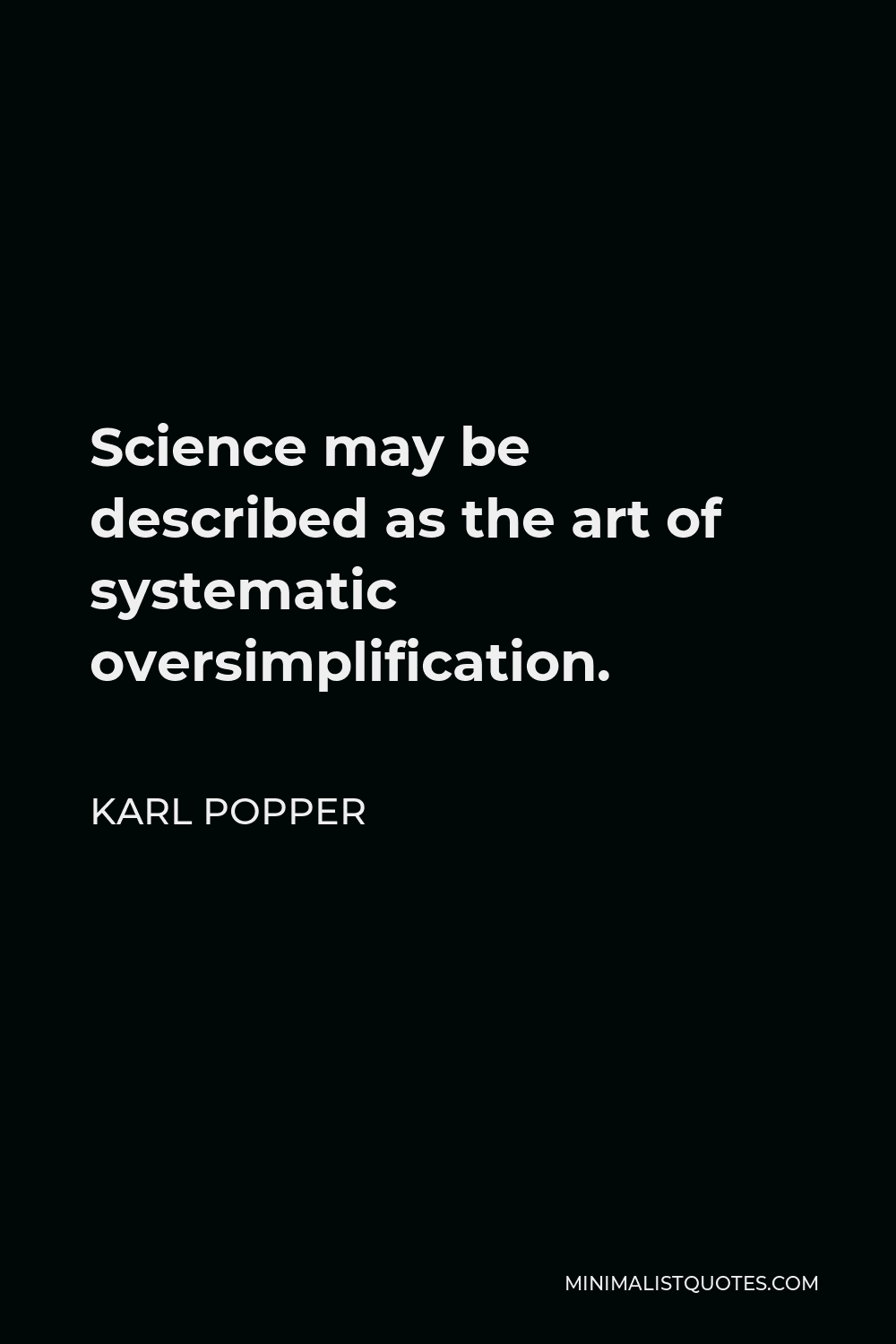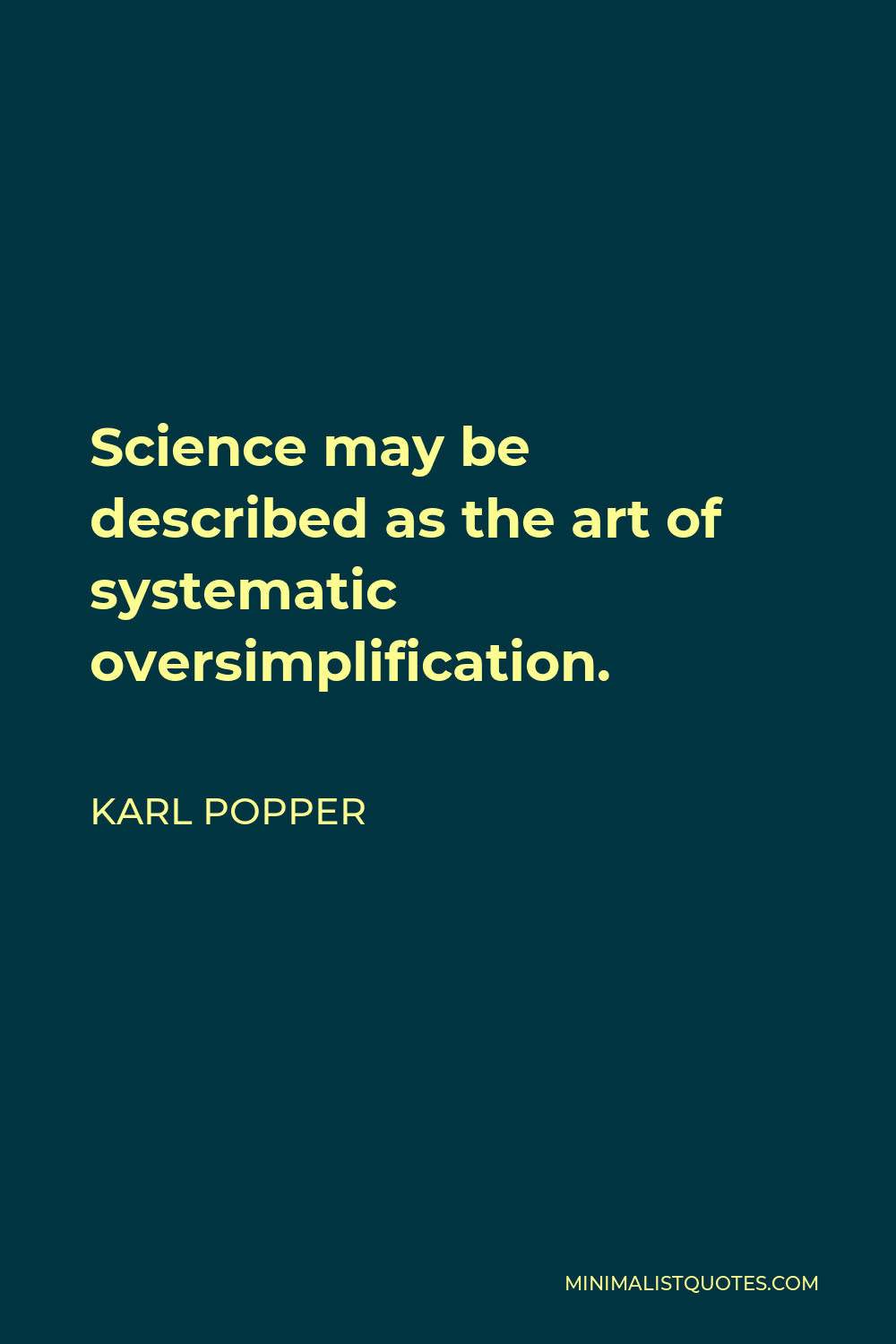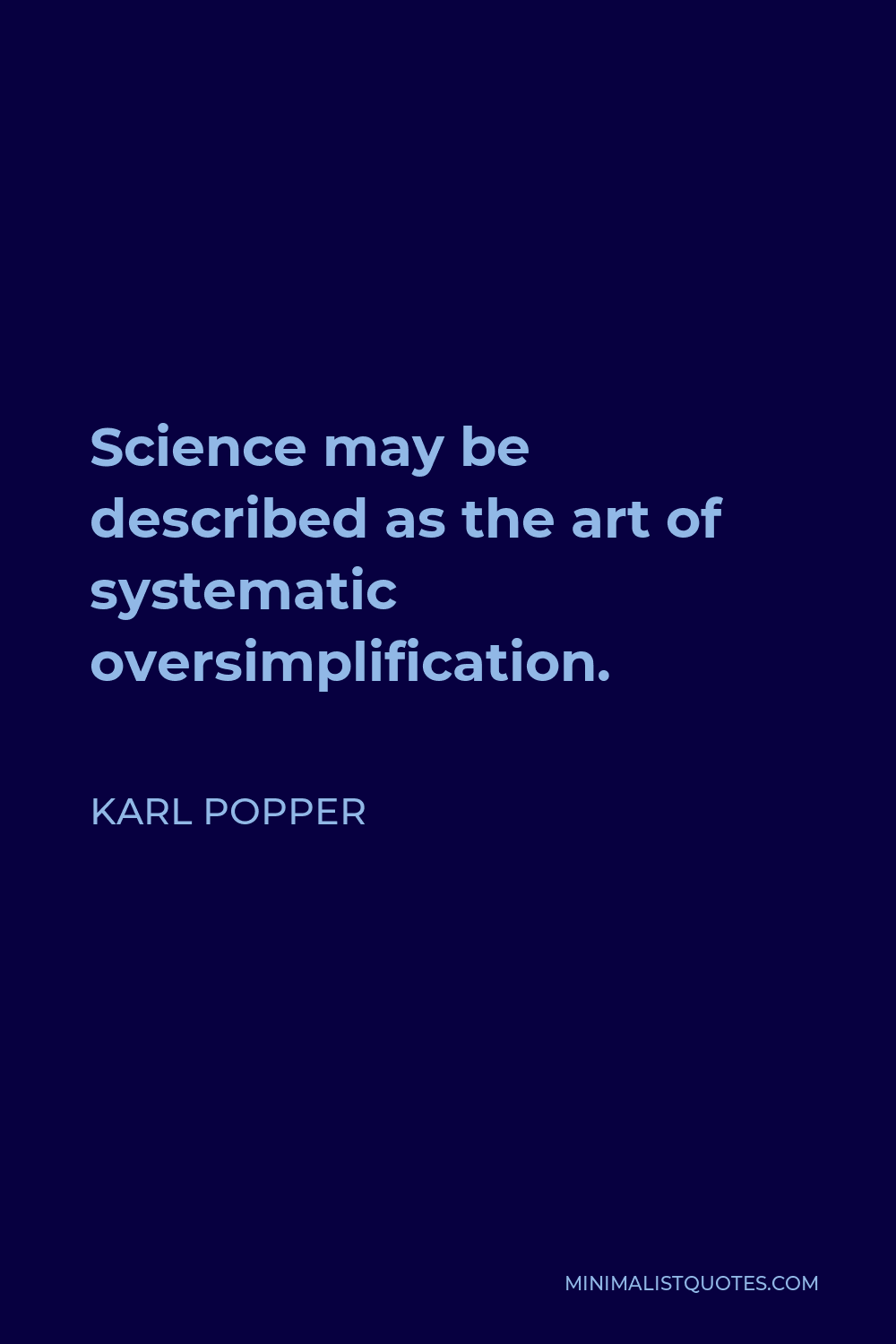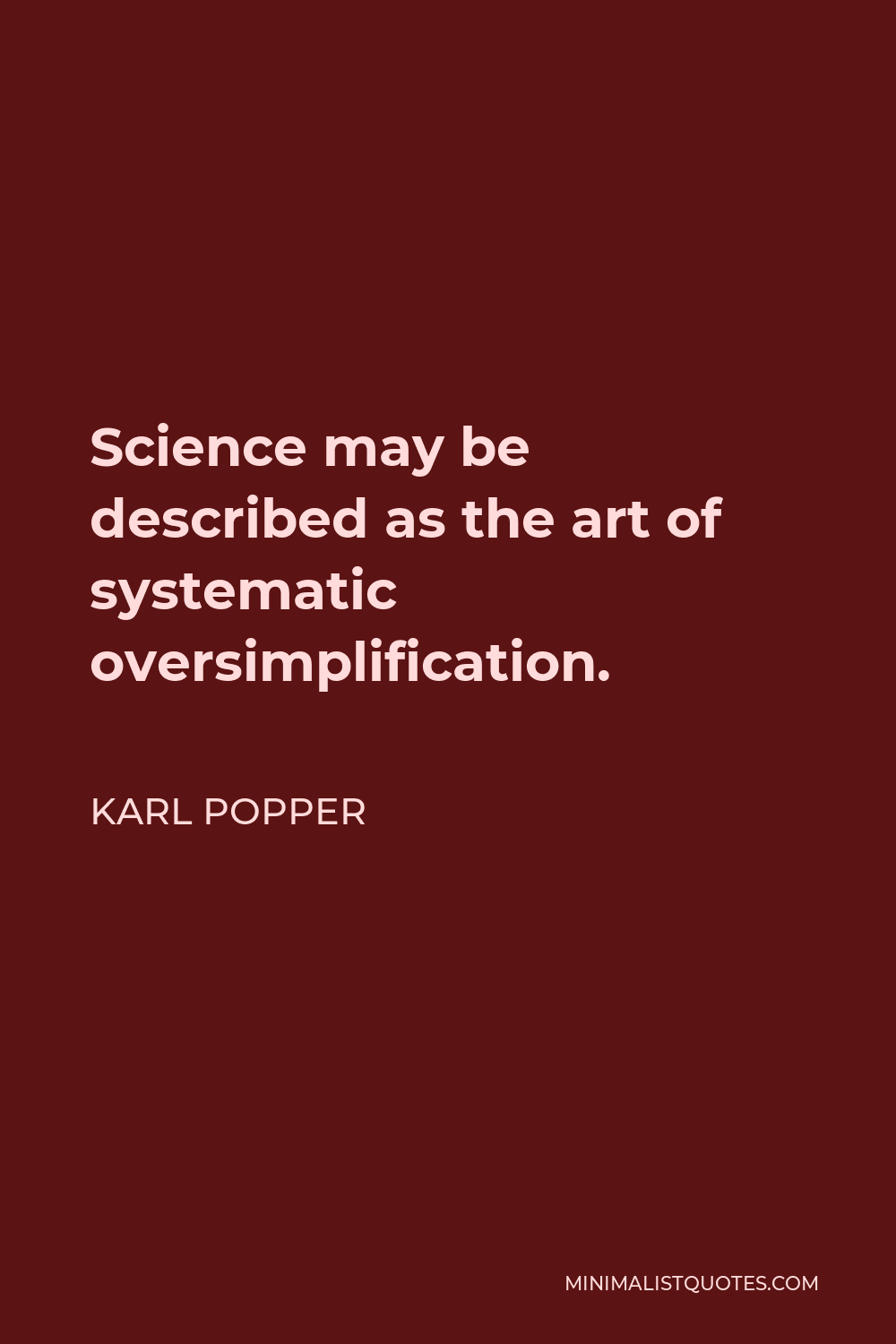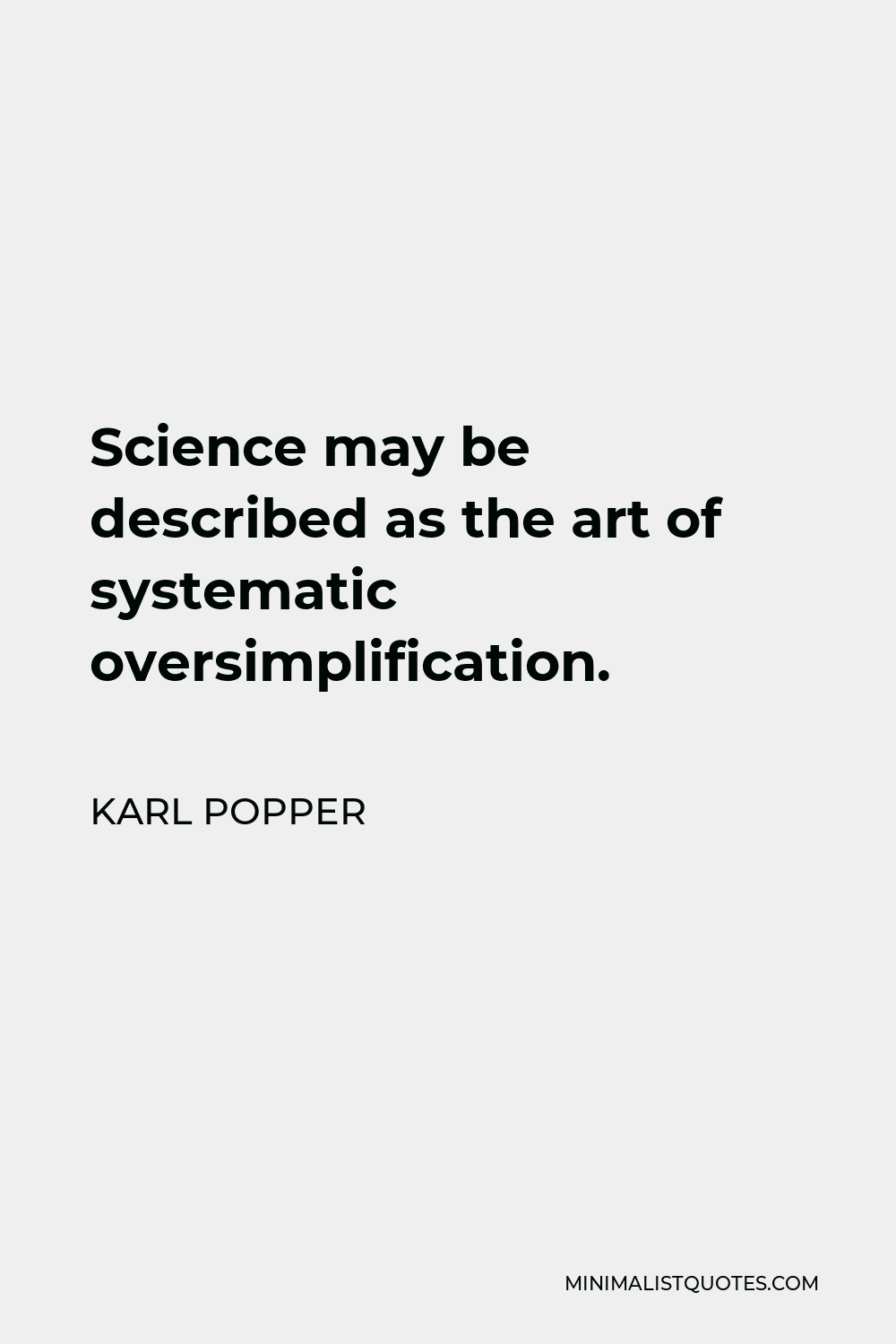All life is problem-solving.
KARL POPPERScience may be described as the art of systematic oversimplification.
More Karl Popper Quotes
-





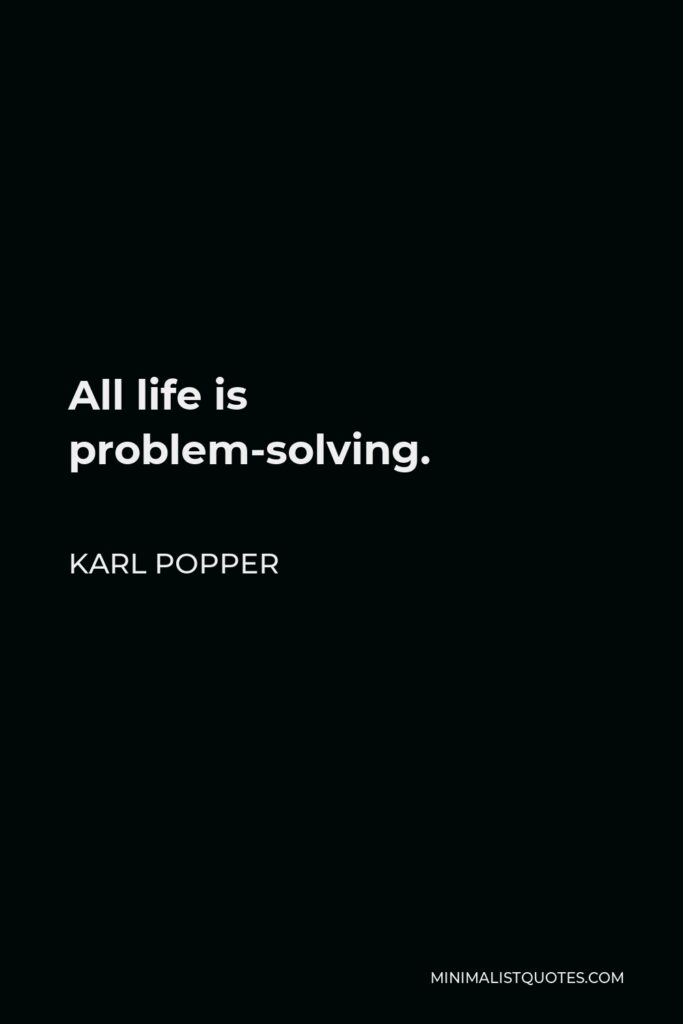

-





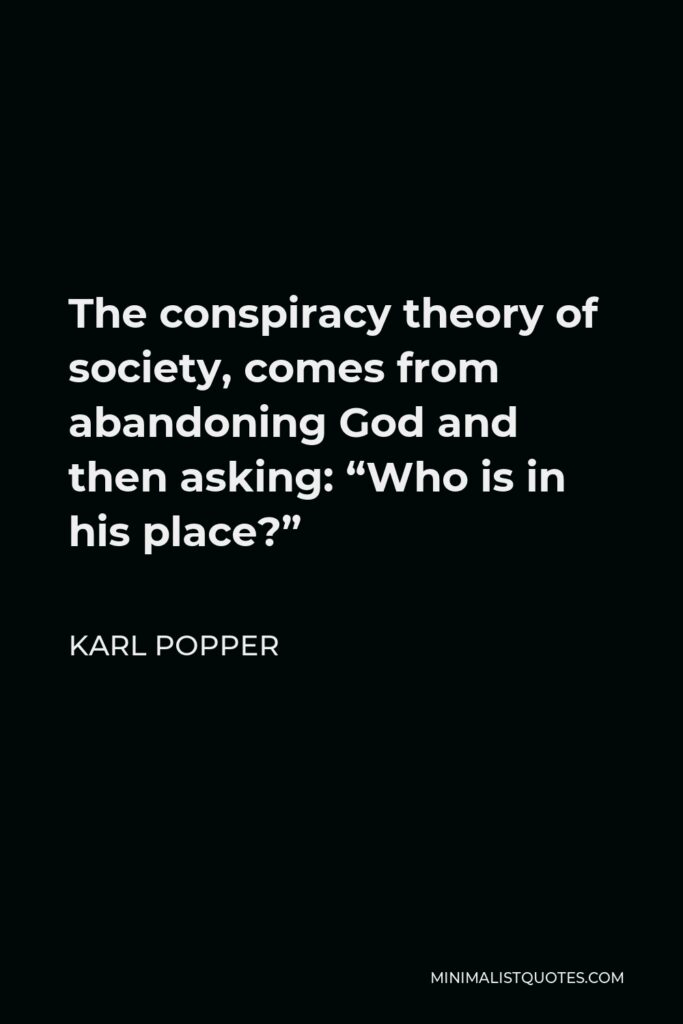

The conspiracy theory of society, comes from abandoning God and then asking: “Who is in his place?”
KARL POPPER -







History has no meaning.
KARL POPPER -





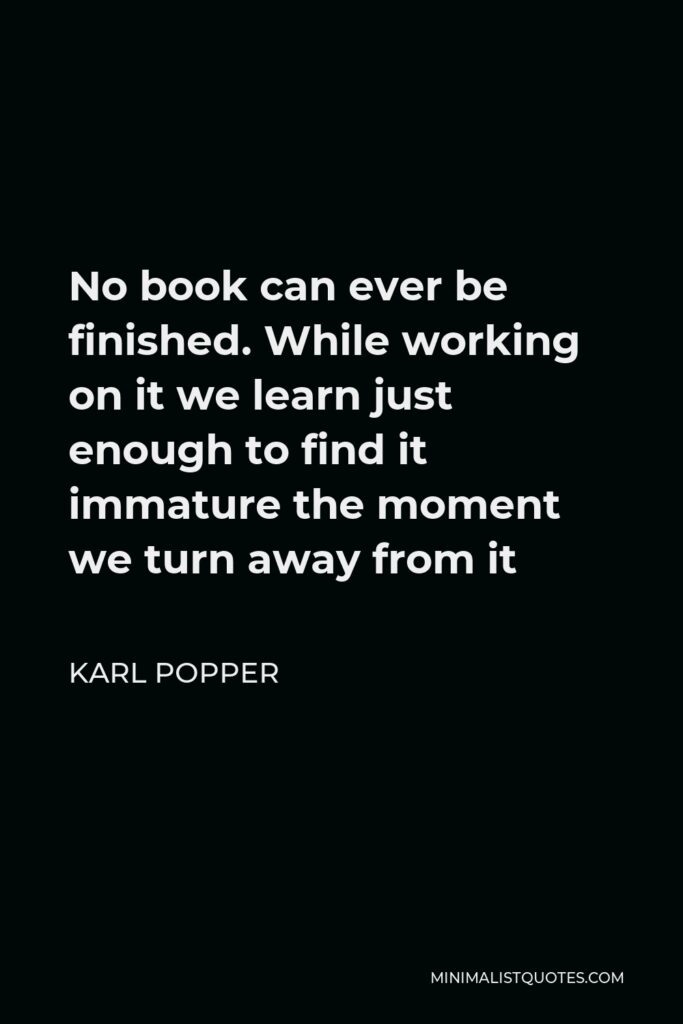

No book can ever be finished. While working on it we learn just enough to find it immature the moment we turn away from it
KARL POPPER -





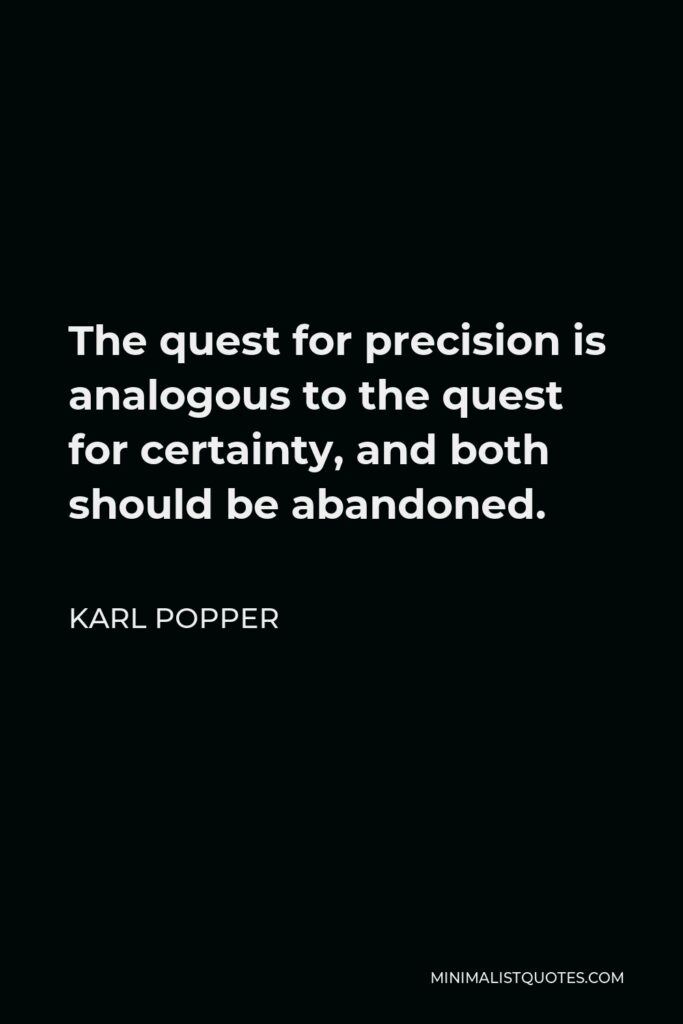

The quest for precision is analogous to the quest for certainty, and both should be abandoned.
KARL POPPER -







It is wrong to think that belief in freedom always leads to victory; we must always be prepared for it to lead to defeat. If we choose freedom, then we must be prepared to perish along with it.
KARL POPPER -





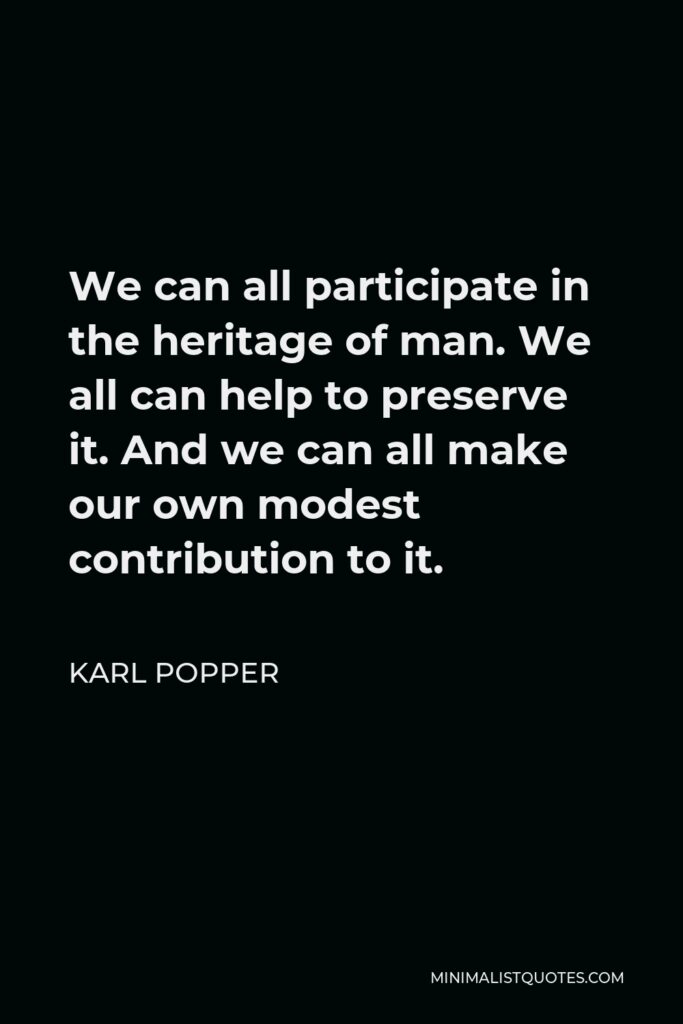

We can all participate in the heritage of man. We all can help to preserve it. And we can all make our own modest contribution to it.
KARL POPPER -





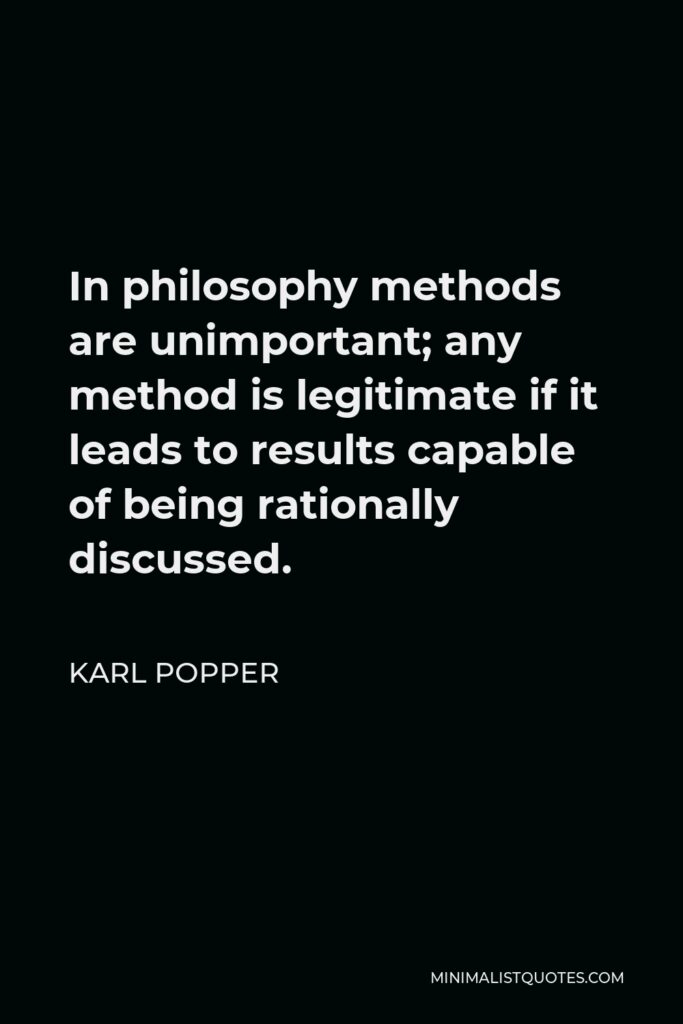

In philosophy methods are unimportant; any method is legitimate if it leads to results capable of being rationally discussed.
KARL POPPER -





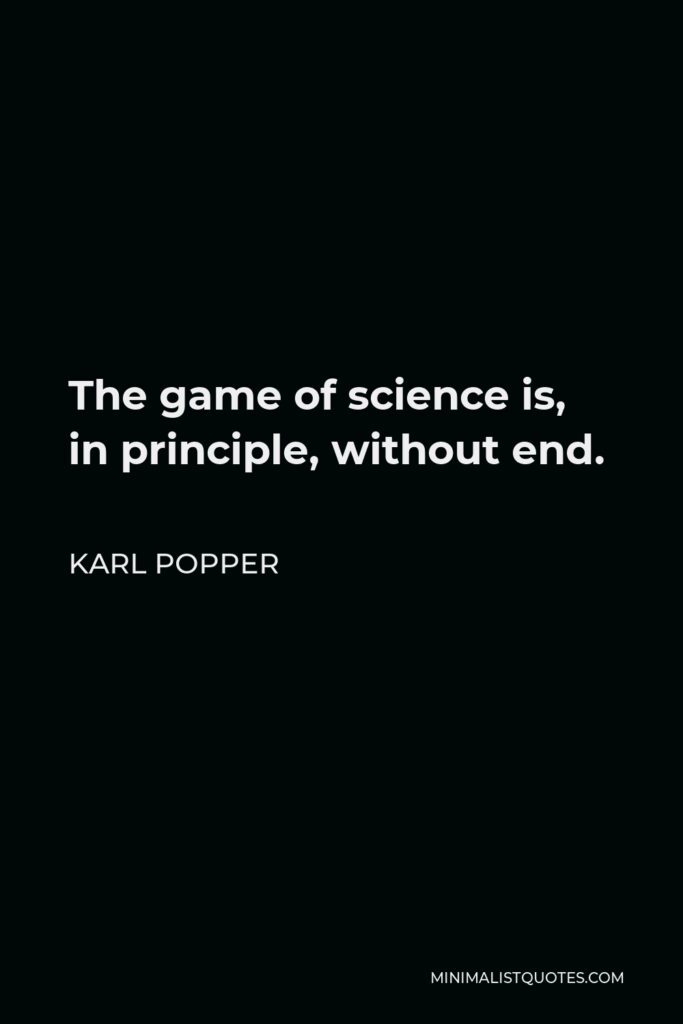

The game of science is, in principle, without end.
KARL POPPER -





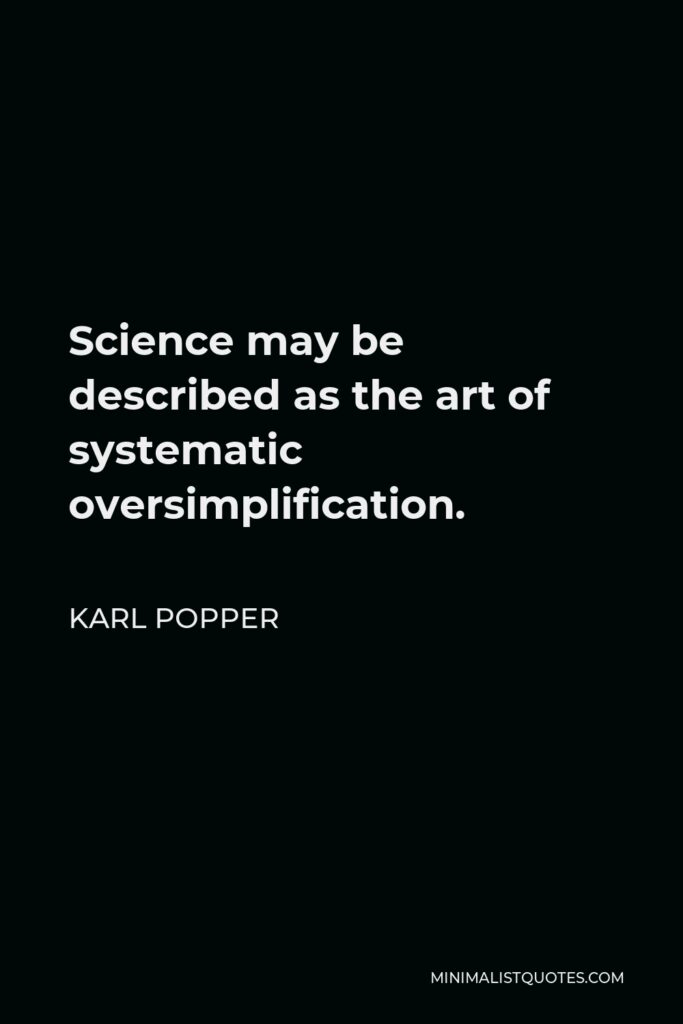

Science may be described as the art of systematic oversimplification.
KARL POPPER -







I hold that he who teaches that not reason but love should rule opens up the way for those who rule by hate.
KARL POPPER -





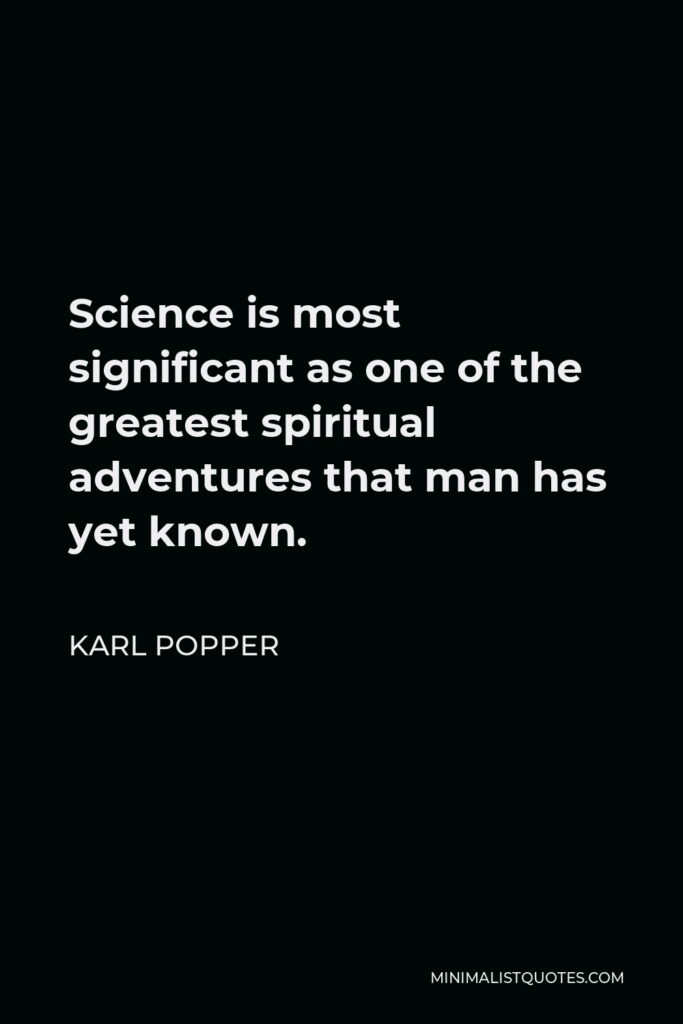

Science is most significant as one of the greatest spiritual adventures that man has yet known.
KARL POPPER -





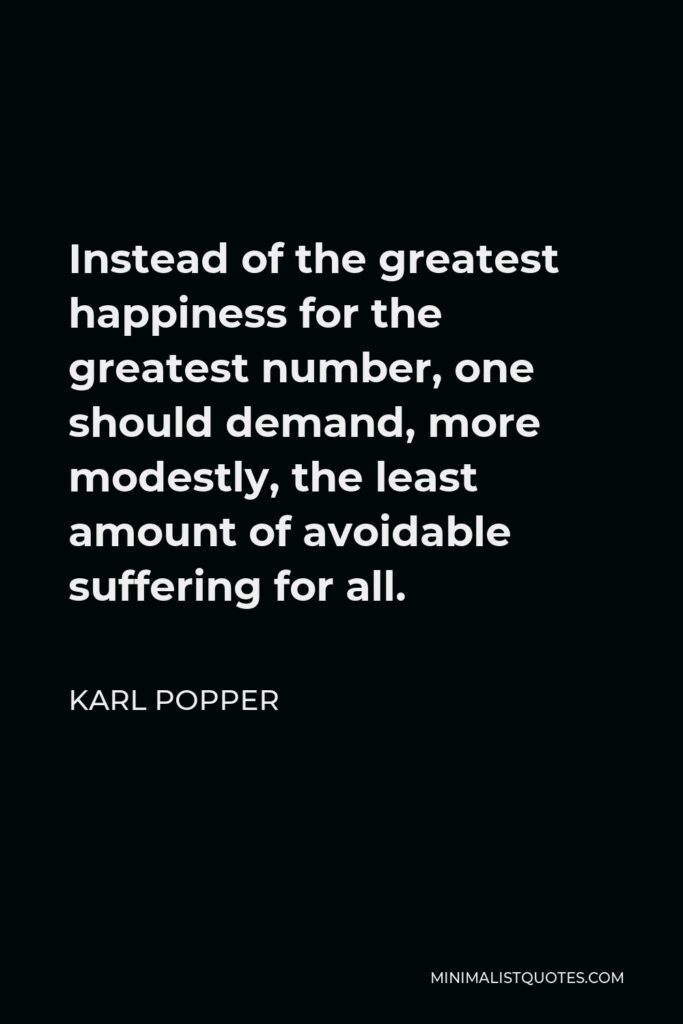

Instead of the greatest happiness for the greatest number, one should demand, more modestly, the least amount of avoidable suffering for all.
KARL POPPER -





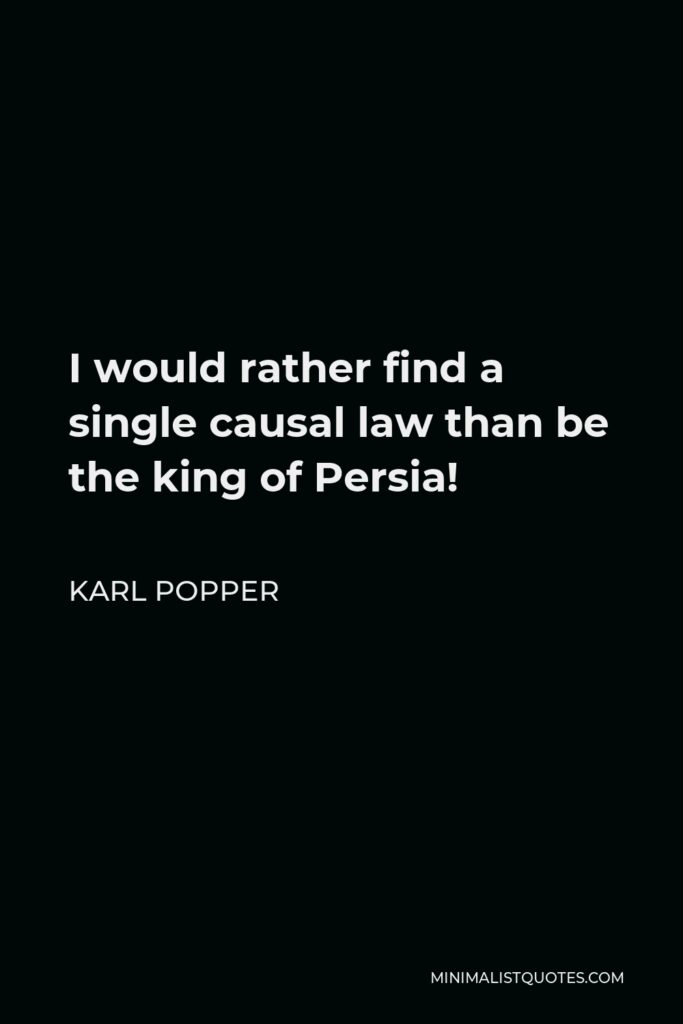

I would rather find a single causal law than be the king of Persia!
KARL POPPER -





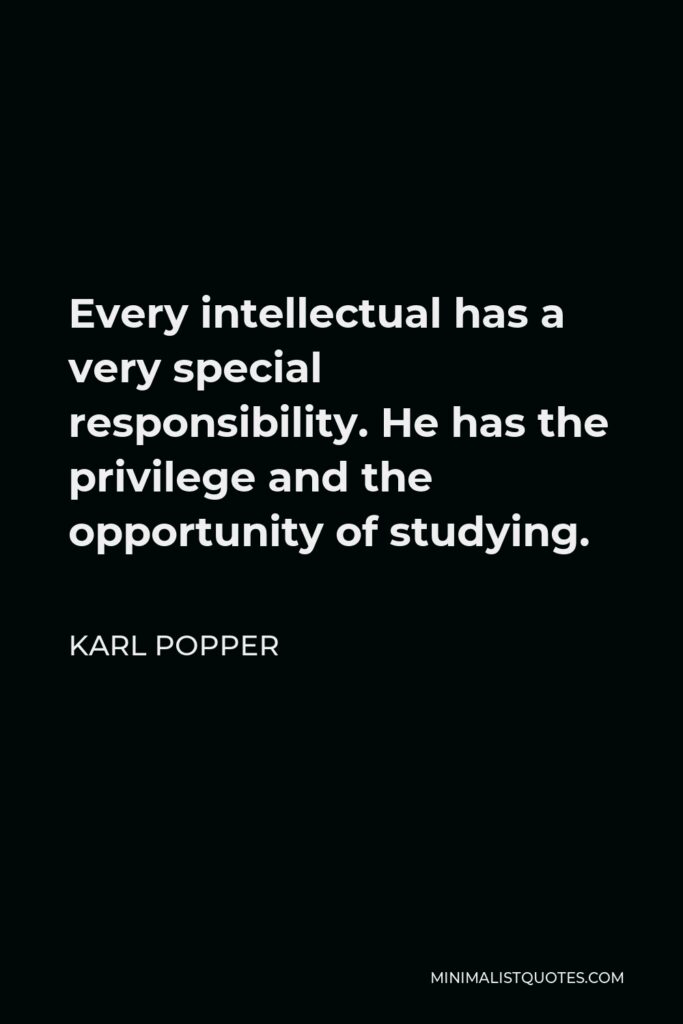

Every intellectual has a very special responsibility. He has the privilege and the opportunity of studying.
KARL POPPER -







He who decides one day that scientific statements do not call for any further test and that they can be regarded as finally verified retires from the game.
KARL POPPER
